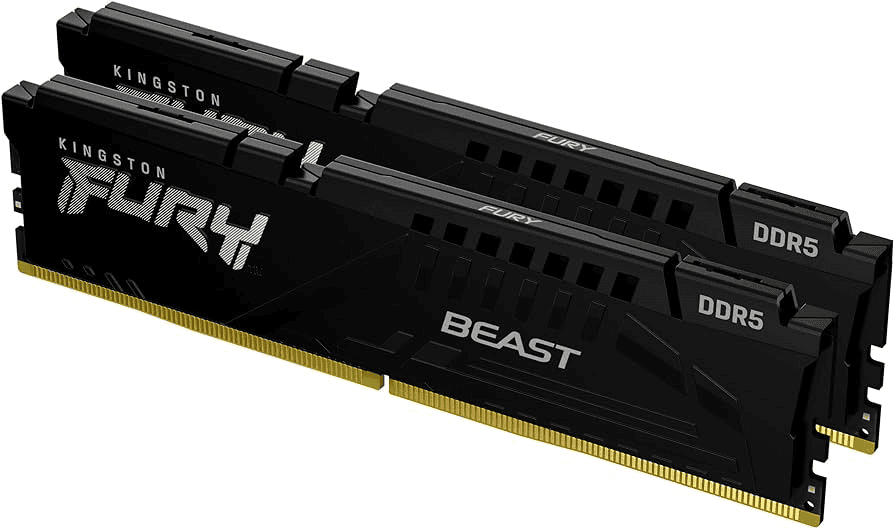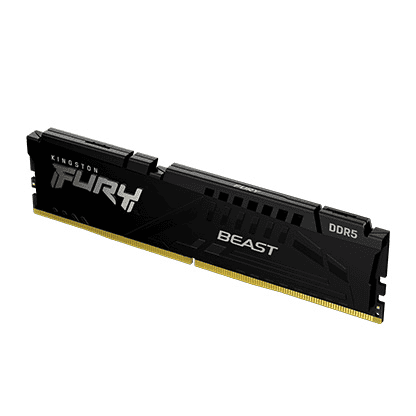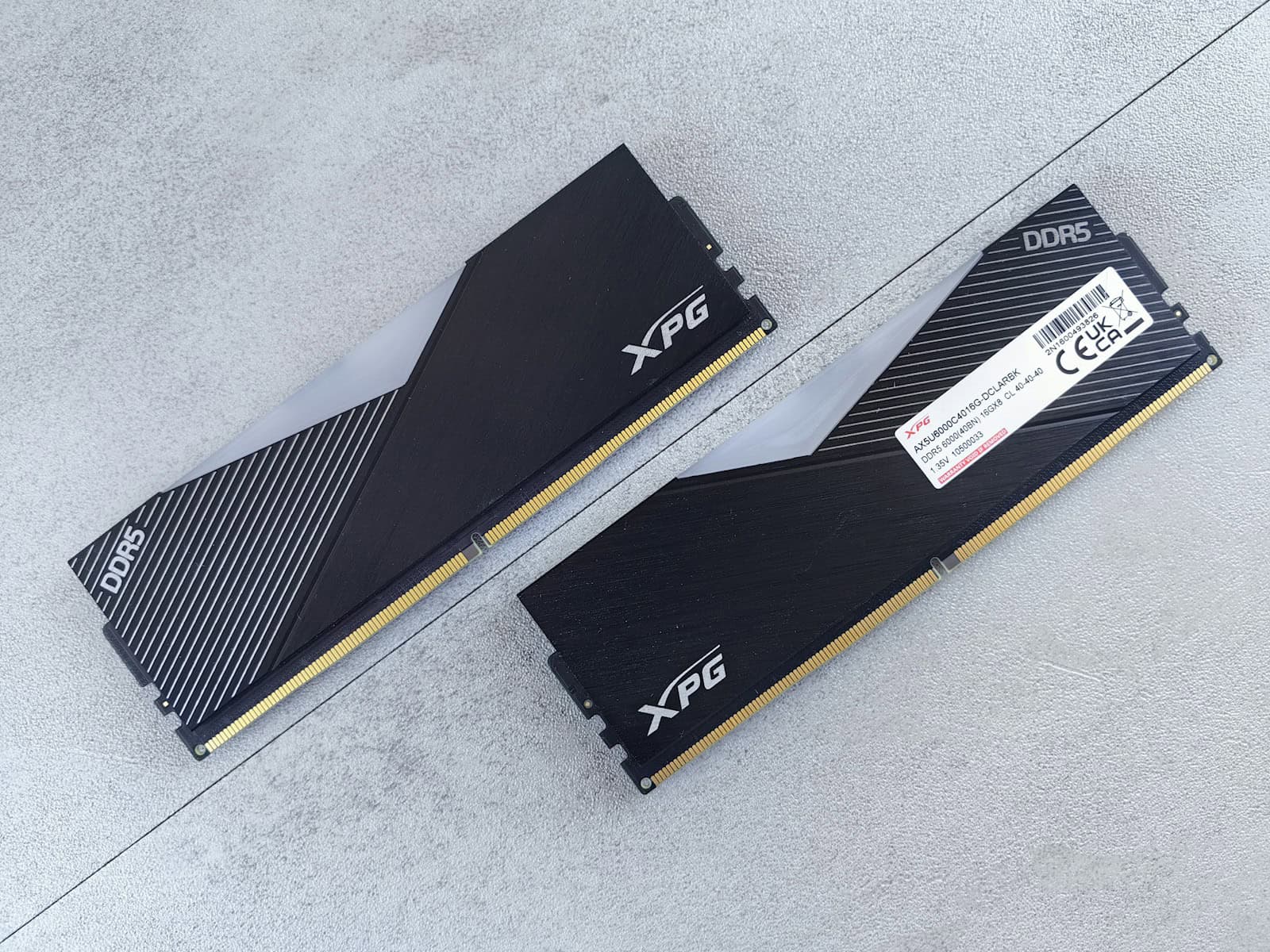For most users, using two sticks of 16GB RAM can provide better performance, upgradeability, and potential for higher speeds compared to using a single 32GB stick. However, it’s important to consider your specific needs, motherboard limitations, and budget when making your decision. Generally, two sticks of 16GB in a dual-channel memory configuration will outperform a single 32GB stick in terms of speed and efficiency. This is because the CPU can communicate more effectively with dual-channel RAM, making it the superior choice. The main reason to choose the single stick option is to keep the other slot open for future expansion, if you’re planning to go that route.
The Benefits Of Two Sticks

It’s generally better to buy two sticks of 16GB RAM than one stick of 32GB. Here’s why:
1. Dual-Channel Performance:
- Most modern motherboards support dual-channel memory. This means having two RAM sticks allows your system to access data from both sticks simultaneously, effectively doubling the memory bandwidth.
- This results in a noticeable performance boost, especially in applications that rely heavily on memory access, such as gaming, video editing, and 3D rendering.
2. Future Upgradeability:
- With two RAM slots populated, you have the option to add more RAM later if needed. You can simply add another two sticks of 16GB to reach 64GB total.
- With a single 32GB stick, you might be limited in your upgrade options, especially if your motherboard only has two RAM slots.
3. Potential for Higher Speeds:
- Some motherboards and CPUs might have limitations on how fast a single RAM stick can run. With two sticks, you have a higher chance of achieving the rated speeds of your RAM.
4. Reduced Load on Memory Controller:
- Distributing the load across two sticks can reduce stress on the memory controller, potentially improving stability and longevity.
5. Easier Troubleshooting:
- If you encounter memory issues, having two sticks allows you to isolate the problem by testing each stick individually.
When A Single 32GB Stick Might Be Okay

- Limited motherboard slots: If your motherboard only has two RAM slots and you need 32GB now, a single stick is your only option.
- Specific workloads: For some workloads that don’t heavily rely on memory bandwidth, the performance difference between single and dual-channel might be negligible.
- Budget constraints: If two 16GB sticks are significantly more expensive than a single 32GB stick, and you’re on a tight budget, a single stick might be a more economical choice.
Key Takeaways
- Performance: Dual-channel configurations (two 16GB sticks) generally offer better performance than a single 32GB stick.
- Upgrade Path: Using two 16GB sticks leaves room for future upgrades, especially on motherboards with four RAM slots.
- Compatibility: Ensure compatibility with your motherboard, whether you choose one 32GB stick or two 16GB sticks.
Dual-Channel vs. Single-Channel RAM: Chart
| Feature | Dual-Channel | Single-Channel |
|---|---|---|
| Data Channel Width | 128-bit (2 x 64-bit) | 64-bit |
| Memory Bandwidth | Higher (approximately 70% – 100% better) | Lower |
| Performance Impact | Significantly improves overall system performance, especially in memory-intensive tasks like gaming, video editing, and multitasking. | Can bottleneck processing power in demanding applications. |
| Latency | Generally lower due to increased available memory channels. | Slightly higher due to single data path. |
| Cost | Requires purchasing two identical RAM modules, slightly higher overall cost. | Requires only one RAM module, lower initial cost. |
| Compatibility | Supported by most modern motherboards. | Supported by all motherboards. |
| Upgradeability | Easier to add additional RAM modules in the future to expand available memory. | Limited future upgrade options when using a single module. |
Additional Considerations:
- The performance difference between dual-channel and single-channel RAM can vary depending on specific factors like CPU generation, RAM frequency, and application types.
- Dual-channel RAM is generally recommended for most users, especially those who use their computers for gaming, video editing, or other demanding tasks.
- Single-channel RAM can be a viable option for budget builds or for less demanding users who mainly use their computers for basic tasks like web browsing and office applications.
Dual vs. Single-Channel: Understanding the Basics
When it comes to RAM, configuration matters as much as capacity. A dual-channel setup, where two memory sticks are used, can provide better performance than a single stick of RAM. This is because dual-channel configurations double the communication pathways between the RAM and the memory controller, enhancing overall system performance.
User Experiences and Recommendations
Reddit users, especially in gaming and PC building communities, often lean towards dual-channel setups for their efficiency. For instance, a user in the r/buildapc subreddit noted that while a single 32GB stick is an option, two 16GB sticks in dual-channel mode would be more efficient, particularly for gaming and heavy multitasking.
Compatibility and Future Upgrades
A common question raised in forums like Microsoft’s is about compatibility and future-proofing. One user asked about mixing different RAM sizes and speeds. The consensus is that while it’s technically possible, it’s not ideal due to potential stability issues and performance bottlenecks.
Real-World Applications: Gaming and Professional Use
In gaming, RAM speed and configuration can impact frame rates and overall smoothness. A user on Vintage is the New Old pointed out that for integrated graphics, dual-channel RAM can significantly boost performance. For professional applications like video editing or 3D rendering, having more RAM in a dual-channel setup can speed up workflows.
The Case for Single 32GB Stick
While dual-channel configurations are generally preferred, there are scenarios where a single 32GB stick might be more suitable. For instance, if a user plans to upgrade to 64GB on a two-slot motherboard, starting with a single 32GB stick could be a strategic choice.
Technical Considerations
- Motherboard Support: Check if your motherboard supports dual-channel memory and has enough slots for future upgrades.
- RAM Speeds: Higher RAM speeds can offer better performance but ensure compatibility with your CPU and motherboard.
FAQs
Is it better to get 2 sticks of RAM or 1?
For most users, it’s better to get two sticks of RAM instead of one. This is because most modern motherboards support dual-channel memory, which allows your system to access data from both sticks simultaneously, effectively doubling the memory bandwidth and boosting performance. Two sticks also offer better upgradeability and potential for higher speeds. However, if your motherboard has limited RAM slots or you have specific budget constraints, a single stick might be a viable option.
Is single stick RAM better than dual?
Generally, no. Dual-channel RAM (using two sticks) offers better performance than single-channel RAM (one stick) due to increased memory bandwidth. This leads to noticeable improvements in applications that rely heavily on memory, such as gaming and video editing.
Is 1 stick of RAM better than 2 reddit?
The consensus on Reddit and other online communities is that two sticks of RAM are generally better than one for performance and upgradeability reasons, especially for gaming and demanding tasks.
Is it better to have 1 32GB RAM or 2 16GB RAM?
Two sticks of 16GB RAM are generally preferred over one stick of 32GB due to the benefits of dual-channel memory, which significantly improves performance in memory-intensive applications.
Why 32GB RAM overkill?
32GB of RAM can be overkill for many users, especially those who primarily use their computers for basic tasks like web browsing, email, and office productivity. For most users, 16GB of RAM is sufficient. However, 32GB or more can be beneficial for gamers, video editors, and those running memory-intensive applications.
Is 4 sticks of 16GB RAM better than 2 32GB?
While both options provide 64GB of RAM, four sticks of 16GB might offer slightly better performance due to quad-channel memory support on some high-end motherboards. However, this performance difference might be negligible for most users. Two sticks of 32GB can be a more practical choice for future upgradeability, as it leaves two RAM slots open for expansion.







